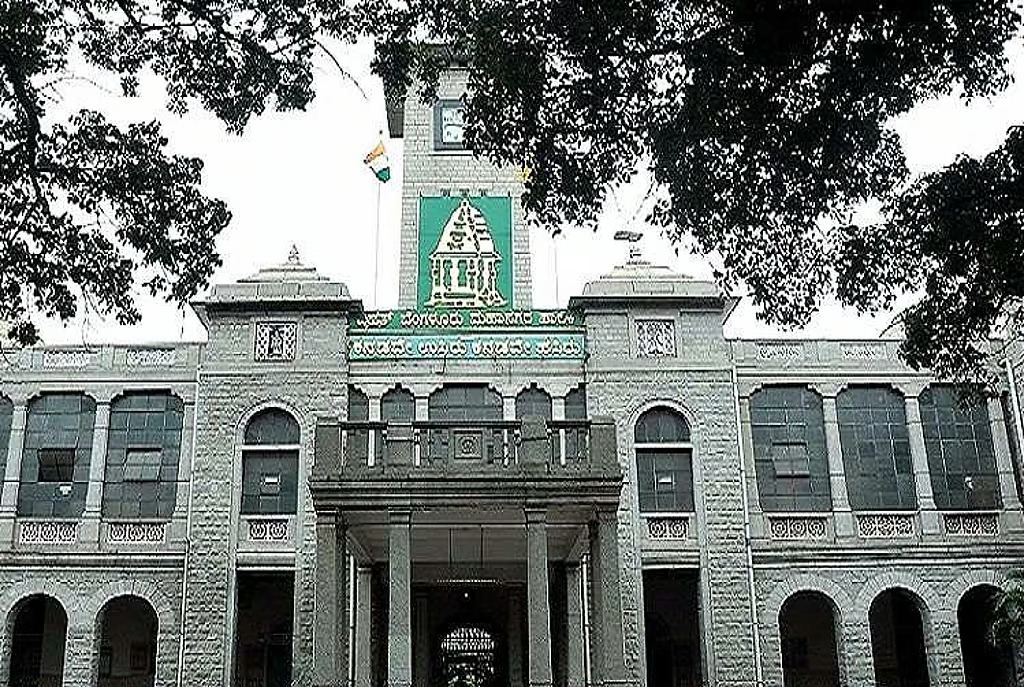The Greater Bengaluru Governance Bill, 2024, passed in the Assembly on March 10, has several provisions that allow legislators more say in the decision-making process. And councilors still have veto powers over ward committee decisions.
The city of Bengaluru can be split into seven city corporations in a drastic restructuring of the Bruhat Bengaluru Mahanagara Palike if the Greater Bengaluru Governance Bill, 2024, comes into effect. The bill was passed in the Assembly on March 10 amid a walkout by the opposition, which also accused the Congress party of trying to divide Bengaluru and also violation of the 74th constitutional amendment, which gives more power to local bodies. The bill calls for the establishment of the Greater Bengaluru Authority (GBA) for coordinating and supervising the development of the Greater Bengaluru Area and dividing the city into a maximum of seven corporations for effective governance.
The 13-member joint legislature review committee led by Shivajinagar MLA Rizwan Arshad has made a slew of recommendations to the bill, several of which concentrate decision-making in the hands of the legislators.
The contention bill, already heavily revised from the draft version submitted to the government by an expert committee, was tabled last year. A joint legislature panel of 16 legislators was formed to review the bill after stiff opposition to it. The new bill, with several changes, was tabled on March 5.
Contrary to Deputy Chief Minister DK Shivakumar’s (also part of the review panel) assertion in the Assembly on March 10 that the bill would ensure the decentralization of power and administration, certain changes made by the panel show that the decision-making powers might not vest with the non-political apparatus as much as expected.
The Greater Bengaluru Authority (GBA) will be the planning authority under which the seven city corporations will function in the greater Bengaluru area. The city corporations will have the power to levy taxes, cresses and duties.
The Chief Minister will be the Chairperson of the Authority, and the Bengaluru Development Minister will be the Vice Chairperson, along with heads of various civic bodies like Bangalore Water Supply and Sewerage Board (BWSSB), Bangalore Development Authority (BDA), Bangalore Electricity Supply Company (BESCOM), etc.
But the new bill also has all elected representatives of Bengaluru as members of the Authority. But unlike the draft bill, the final version passed in the Assembly gives voting rights to all these representatives too.
“All the elected members of the Lok Sabha and Rajya Sabha and the State Legislative Assembly and Legislative Council, whose constituencies lie within or substantially within the Greater Bengaluru Area or who resides in that area of the Greater Bengaluru Authority, shall also be members of the Greater Bengaluru Authority. And shall have the right to vote.”
Some of the changes from the earlier bill:
- The terms of mayors and deputy mayors have been cut from five years to two-and-a-half years. The new bill also allows no confidence motions, but only after six months and if defeated, no such motion will be allowed for another six months.
- Both Area Sabhas and Zonal committees have been dropped from the new bill.
- The chief commissioner of GBA will be the rank of principal secretary and not additional secretary. While the Commissioner’s term is declared three years, the section in the earlier bill that says the Commissioner can be removed by not less than two-thirds of the majority by GBA on grounds of misconduct and neglect, or incapacity to perform duties assigned to him, has been removed.
- The new bill also calls for an Assembly constituency-level committee with the MLA as the chairperson and MLCs and councilors as members, apart from officials. They will be coordinating with parastatal agencies, monitoring all projects in the area, receiving grievances from the general public and advising the ward committees. This committee replaces the Constituency Consultative Committee (committee members not mentioned) and the zonal committees (no legislators) mentioned in the previous bill.
- Each Standing Committee will consist of a minimum of nine councilors and a maximum of fifteen members, including the chairperson. The earlier bill called for only five councilors, including the chairperson.
- If the Mayor and Deputy Mayor’s posts are vacant, the Chairman of the Standing Committee for Administration, Education and Social Justice will discharge the functions of the Mayor. The earlier bill gave this responsibility to the commissioner of the city corporation.
- Ward committees are to have fifteen people, including the ward councilor, who will be the chairperson, as against a total of eleven people mentioned in the earlier version. The term of office of the Ward Committee will be only twenty months as opposed to the earlier bill, which said it would be coterminous with the term of office of the City Corporation. The new bill also wants four people to be nominated by the GBA and three members by the city corporation, as opposed to the earlier bill, which mentioned all ten members being nominated by the city corporation.
- The new bill also gives the councilor the power to veto any decision of the ward committee.
- The officials and the officers working in the city corporations, local bodies and the GBA will merge to form a common cadre under the Greater Bengaluru Authority as the cadre controlling authority. The officers/officials working/had worked in Bruhat Bengaluru Mahanagara Palike on deputation for more than five years may be merged into this cadre.
- Only one-third of the members are required for the quorum of meetings of the GBA that is to be held once a month.
- An entire section on the financial functions of the Greater Bengaluru Authority has been removed from the earlier version.
- A Financial Advisory Committee, consisting of four members, to review the financial position of the GBA, city corporations and other agencies and make recommendations regarding the distribution of finances mentioned in the earlier bill has been removed.
- The constitution of a Greater Bengaluru Security Force to protect property owned by city corporations and detection and investigation into matters related to leakage of revenue and tax payable has been removed.
- The new bill also calls for the appointment of one of its own officers as Chief Auditor to conduct an audit of the Greater Bengaluru Authority. The earlier bill called for an audit by a chartered accountant.
- When a local area is included in the GBA, the government shall decide the city corporation of which the said local area shall be a part. However, as far as possible, an Assembly constituency shall not be divided into two or more city corporations while adding or removing any area, the revised bill says.
- Anyone contesting for the post of councilor can stand for elections in any ward of the city corporation where they are registered to vote. The earlier bill did not restrict them from contesting elections in their city corporation.
- Commissioner of city corporation to be the rank of secretary to government, rather than principal secretary laid down in the earlier bill.



